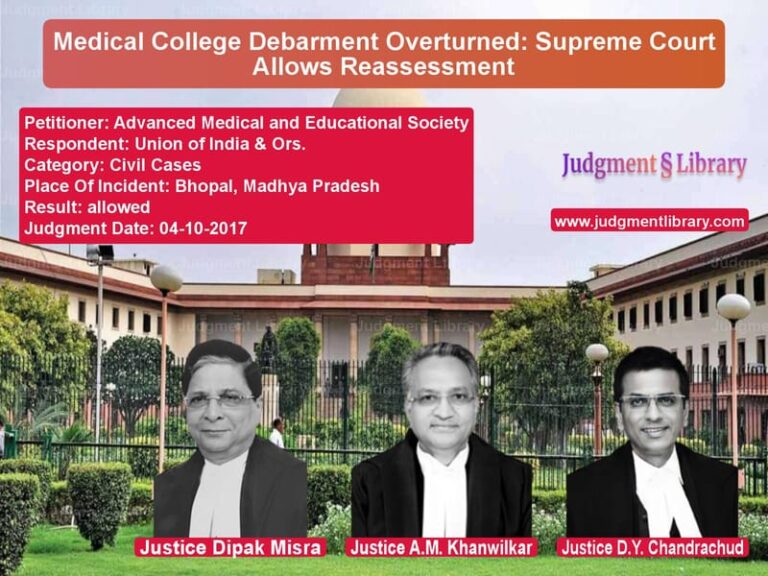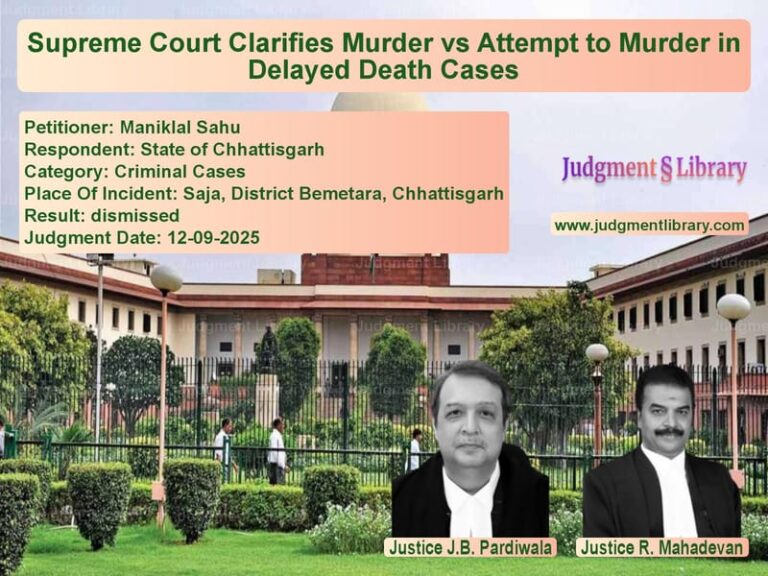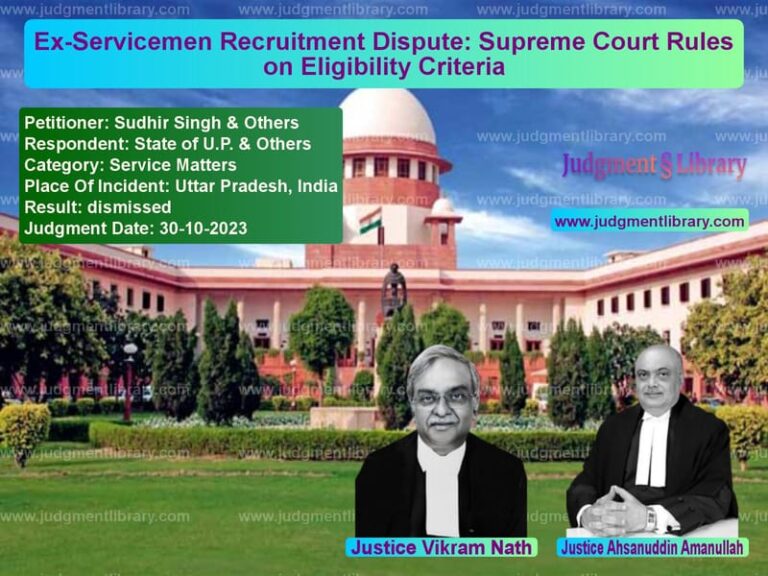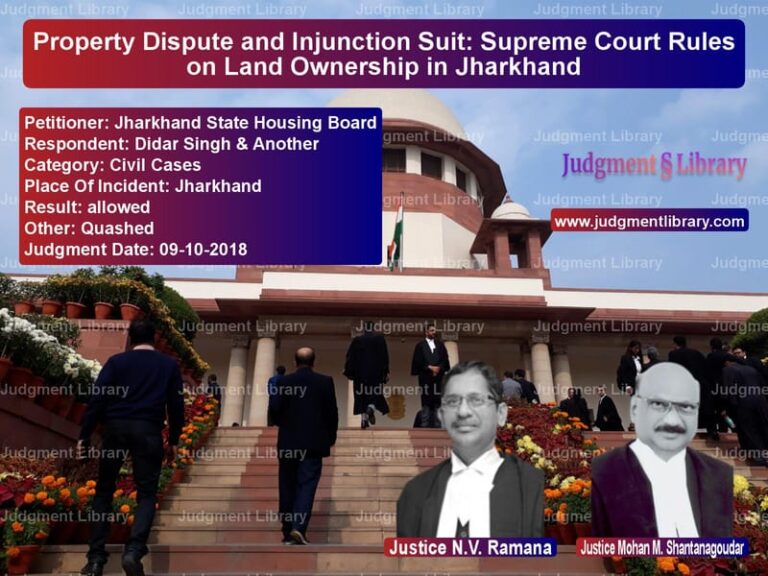Supreme Court Rules on Gratuity Payment for Bank Employees
The Supreme Court of India, in the case of Central Bank of India vs. M. Sethumadhavan & Ors., addressed the contentious issue of gratuity payments for retired bank employees. The dispute revolved around the fixation of a cut-off date that determined eligibility for revised pay scales while calculating gratuity.
The appellants, comprising nationalized banks and the Association of Banks, contested the decisions of various High Courts that had ruled against their regulations. The banks argued that they were justified in setting a cut-off date, given that they offered gratuity terms superior to the Payment of Gratuity Act, 1972.
Background of the Case
The case primarily dealt with the second proviso to Regulation 46(2) concerning gratuity payments. The regulation states:
46(2) The amount of Gratuity payable to an officer shall be one month’s pay for every completed year of service, subject to a maximum of 15 months’ pay.
The controversy stemmed from the proviso that restricted the revised pay scale benefits for gratuity calculation only to those who retired after October 31, 1994. Those who retired earlier were denied the benefit of the revised pay scale.
Arguments by the Banks
The appellants contended that the fixation of a cut-off date was justified because:
- They offered gratuity at one month’s pay per year of service, compared to 15 days under the Payment of Gratuity Act.
- It was a policy decision taken in alignment with financial constraints.
- The revision of pay scales did not necessarily mean an automatic revision of gratuity payments.
Arguments by the Retired Employees
The respondents, comprising retired employees, challenged the cut-off date as arbitrary and discriminatory, arguing that:
- It violated Articles 14 and 16 of the Constitution by treating similarly placed employees differently.
- It resulted in an unfair deprivation of their rightful dues.
- The benefit of revised pay scales should be uniformly applied to all retirees.
Judicial Precedents Considered
The Supreme Court examined several past judgments, including:
- D.S. Nakara v. Union of India (1983), where the Court held that pensioners should not be discriminated against based on retirement dates.
- State of Punjab v. Amar Nath Goyal (2005), which upheld the validity of fixing cut-off dates in certain financial matters.
- State of Andhra Pradesh v. A.P. Pensioners’ Association (2005), affirming the State’s authority to set reasonable cut-off dates.
Supreme Court’s Ruling
The Supreme Court ruled that:
- The fixation of a cut-off date for gratuity calculation was not arbitrary or discriminatory.
- High Courts ruling against the cut-off date had not considered the financial implications properly.
- To provide relief, an ex gratia payment of Rs. 2,00,000 was directed to be paid to the affected retirees.
- The decision settled the matter in law while ensuring justice for the litigants.
Conclusion
The judgment strikes a balance between the financial autonomy of banks and the rights of retirees. While the cut-off date remains valid, the Court’s intervention ensures that affected employees receive some compensation for their prolonged litigation. This ruling sets a precedent for similar disputes regarding gratuity payments and pension schemes.
Don’t miss out on the full details! Download the complete judgment in PDF format below and gain valuable insights instantly!
Download Judgment: Central Bank of Indi vs M. Sethumadhavan & O Supreme Court of India Judgment Dated 29-03-2017.pdf
Direct Downlaod Judgment: Direct downlaod this Judgment
See all petitions in Pension and Gratuity
See all petitions in Employment Disputes
See all petitions in Judgment by Kurian Joseph
See all petitions in Judgment by R. Banumathi
See all petitions in dismissed
See all petitions in settled
See all petitions in supreme court of India judgments March 2017
See all petitions in 2017 judgments
See all posts in Service Matters Category
See all allowed petitions in Service Matters Category
See all Dismissed petitions in Service Matters Category
See all partially allowed petitions in Service Matters Category







